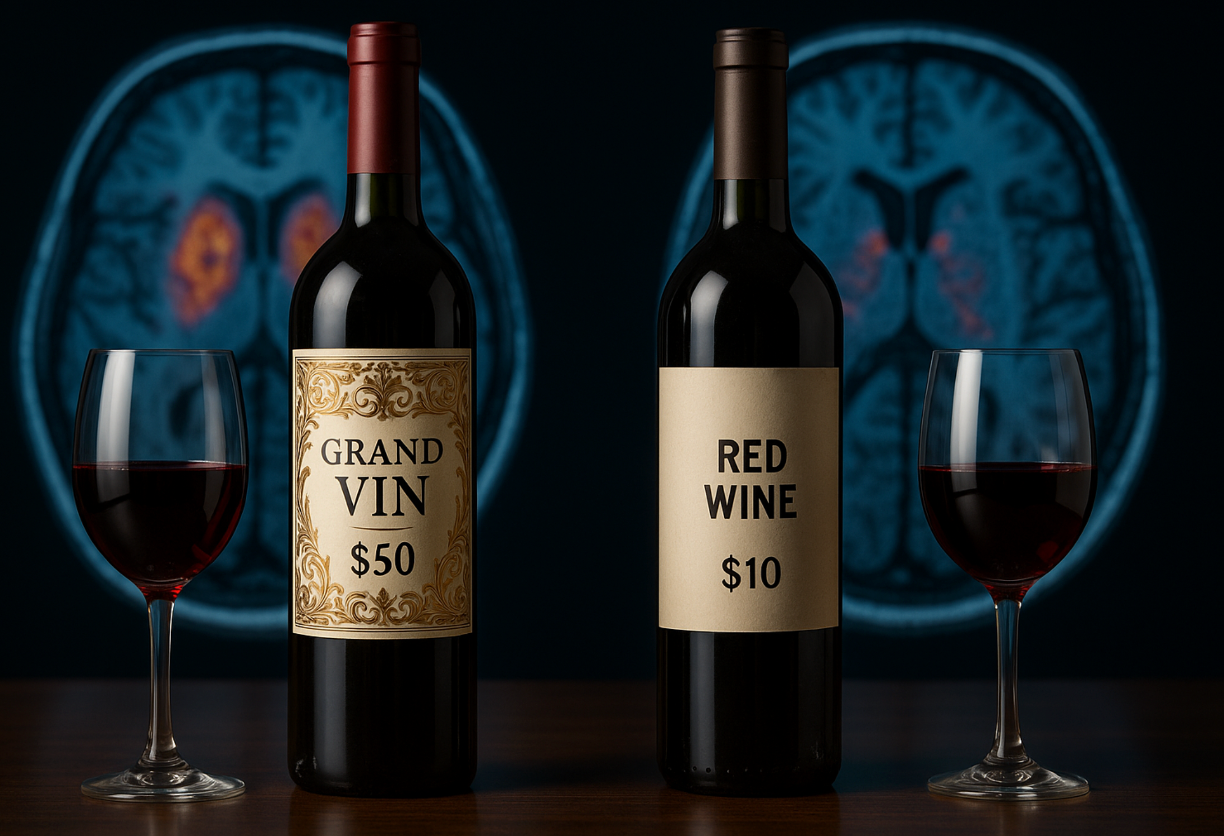We Experience What We Expect
Did you know the placebo effect is active in your brain every single day, not just in hospitals or clinical trials?
Psychologists call it Expectancy Theory, and it shows that the reality we experience is driven by our expectations.
The science in action
In one NIH study, participants were given two bottles of wine to try: one with a fancy label and a high price tag, the other with a plainer label and a lower price. What participants didn’t know was that both bottles contained the exact same wine. The crazy part is that they not only said the higher priced wine tasted better, brain scans actually showed stronger activity in the brain’s pleasure centers. The higher price set the expectation, and the wine literally tasted better because they expected it to.
A similar effect showed up with energy drinks. In a study led by Baba Shiv, Dan Ariely, and Ziv Carmen, participants drank the same drink before attempting puzzles. Some paid full price, others got it at a discount. The discounted group solved fewer puzzles. Lower price led to lower expectations which resulted in lower performance.
And in medicine, it happens every day. Patients consistently report more relief from brand-name drugs than generics, even when the two are chemically identical. The brand’s reputation sets the expectation, and the experience follows.
If price tags, discounts, and brand names can shift perception that strongly, think about what leadership framing can do for execution.
What this means for your strategic execution
You can employ these same ideas when implementing strategies and initiatives. It’s all about credibly setting expectations of success. But it can’t be hype or empty promises. It has to be about explaining why the work matters, showing that there’s a clear path to success, and expressing confidence in the team’s ability to get it done.
And momentum comes from that lens being reinforced over time. At kickoff, frame the effort as meaningful and achievable. Along the way, celebrate milestones by showing progress toward the end goal. Each time expectations are confirmed, momentum builds. That’s the science behind why momentum feels so real: expectations, experienced and reinforced, compounding into belief.
How to use it
Frame credibly. Kickoffs have to be more than logistics; they’re your chance to set believable expectations for success and progress.
Prove it with evidence. Don’t assume progress speaks for itself. Call out wins and turning points so they become the remembered story.
Build momentum intentionally. Rituals, scoreboards, and celebrations are all signals that reinforce expectations and keep people looking for progress.
The same brain wiring that makes wine taste better under a fancy label or medicine feel stronger under a brand name is what makes strategy execution feel real when expectations are credibly set. Execution isn’t just about resources and plans. It’s about the expectations you set and the credibility you build by proving them true over time. That’s what turns strategy into momentum.

